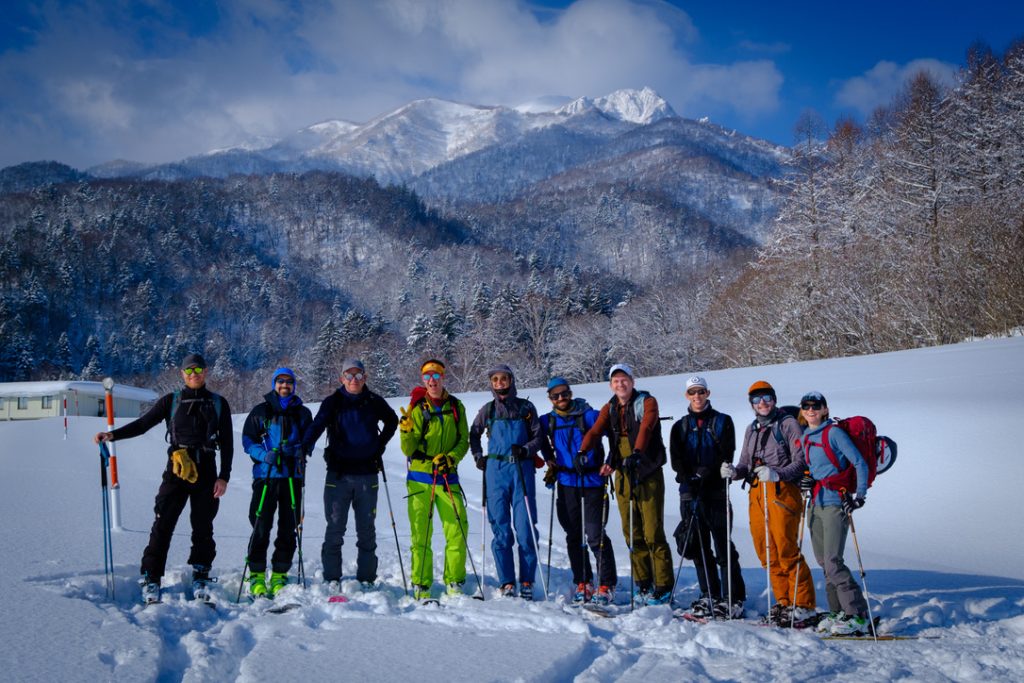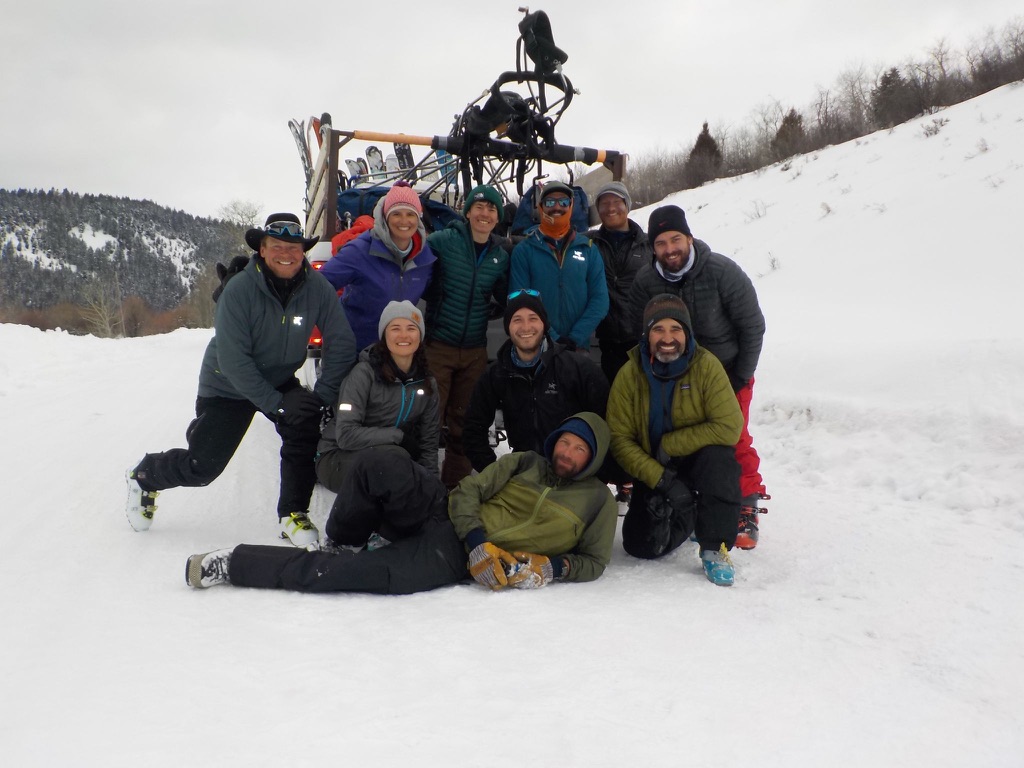National Outdoor Leadership School (NOLS)
The National Outdoor Leadership School (NOLS) is an American outfit that runs skills-based wilderness courses all over the world. You can take courses for college credit, to pick up outdoor skills like sailing, mountaineering, climbing or backcountry skiing, or simply to have a good time in nature. At the time of writing I’ve done two courses:
- 2020 Winter Backcountry Touring in the Tetons in Idaho and Wyoming. This involves a couple days of resort-skiing (to get everyone at least basic skiing skills) and class-room avalanche instruction and equipment prep. The rest of the course is in the backcountry, first a couple days in a yurt and the rest camping in snow dugouts (quinzhees). Quite a lot of time is taken up just learning to survive, and with level 1 AIARE avalanche qualification, but there’s also amble time for backcountry skiing.
- 2023 Alumni Japan Powder Skiing on Hokkaido. This was the first year for this trip (although I was on the 2nd team to go that year). Alumni trips are less focused on instruction and qualification and more on plain fun. So we slept in actual beds (or on tatami mats at least), staying 3 different places on the island of Hokkaido and driving around to backcountry ski spots that the instructors had staked out. And lots of time soaking in onsen natural hot springs after long days skiing.
I really enjoyed both (very different) experiences and would recommend NOLS to anyone interested in surviving and thriving in the great outdoors.

I learned of NOLS from reading Chris Hadfield’s (the Canadian commander of the International Space Station) book “An Astronaut’s Guide to Life on Earth”. Chris participated in multiple NOLS courses to prepare for his stint on the ISS. His thinking is that the experiences are similar: You team up with a group of people you’ve never met before in an unfamiliar environment (the Utah desert, Low Earth Orbit) and you have to immediately figure out how to work together and solve problems. He also describes how he found aspects of NOLS’ ethos such as “expeditionary behavior” useful for coping with life in space (and on Earth). “Expeditionary behavior” can be bluntly summed up as “always put the group before yourself and never complain or whine unless your problem is a risk to the success of the group”.
In NOLS, opportunities for personal and leadership development are not based on contrived hardship. Eg. there’s no Bear-Grylls-like challenges involving long pointless marches without supplies (although talking to folks that participated in courses in past decades, fasting was sometimes encouraged). You get plenty of food and work with instructors to make sure you’re bringing all the equipment you need to succeed. Instead, opportunities for development come up when learning new skills, when working together as a team and are offered by the vicissitudes of nature itself.
The ethos of NOLS is hard to pin down and having participated in just two courses I don’t claim to have a deep understanding, but here’s my impression: On one hand, inclusivity and personal reflection are important. Students are encouraged to share their feelings and appreciation for one another, there are daily “readings” of poems and other texts that are then discussed in the group and everyone shares impressions and highlights of the day (the way I’m wired, I always have to get over myself to embrace stuff like that with a group of strangers, but it really does make for a much better experience). But NOLS also embodies a flinty hardness. Nature can be unforgiving, and NOLS wants students to be mentally and physically prepared to deal with the ups and downs of outdoor life. NOLS was founded by Paul Petzoldt who served with the 10th Mountain Division in Italy in WW2 and NOLS works closely with the US Military to provide training to both active duty personnel and veterans. That somehow shines through in regular courses too. The group that had gone before us on the Winter Touring expedition in the Tetons was comprised of Navy SEALS, and they reportedly found it to be tough going which caused some amount of trepidation in our group.
NOLS courses have also been a great way to get to know people that—like me—love being outdoors in winter. As an example, the packing list for the Winter Backcountry Touring trip does not include toilet paper, and you instead do your business by digging a hole in the snow and wiping with snowballs upon completion. What I’m trying to say is that folks that sign up for NOLS courses are typically willing to go the extra mile to have great experiences in life and turn out to be great expedition partners with lots of fun stories to share. I am mindful that NOLS also ends up selecting for students that are like me in less interesting ways, that is white and relatively well off (courses are not cheap, although still a bargain in my opinion). NOLS is working hard to try and change that, but there is clearly a long way to go.
The NOLS instructors on the courses I’ve been on are of a breed apart. I can recognize aspects of my own life arc in them, but for all of them they seemingly decided that being outdoors and sharing their love of nature with others was as-or-more important than office jobs or traditional careers. Some of them have—over decades of NOLS instructing—literally spent half their time “in the field”: sleeping in tents, snow-caves, under tarps or just under the stars. All the NOLS instructors I’ve met are highly educated, knowledgable, resourceful and extremely high energy. NOLS is the only place I know where you’ll find a Rhodes scholar helping you adjust your skis, while unironically holding forth on the spiritual importance of skiing deep powder snow.

Leave a Reply